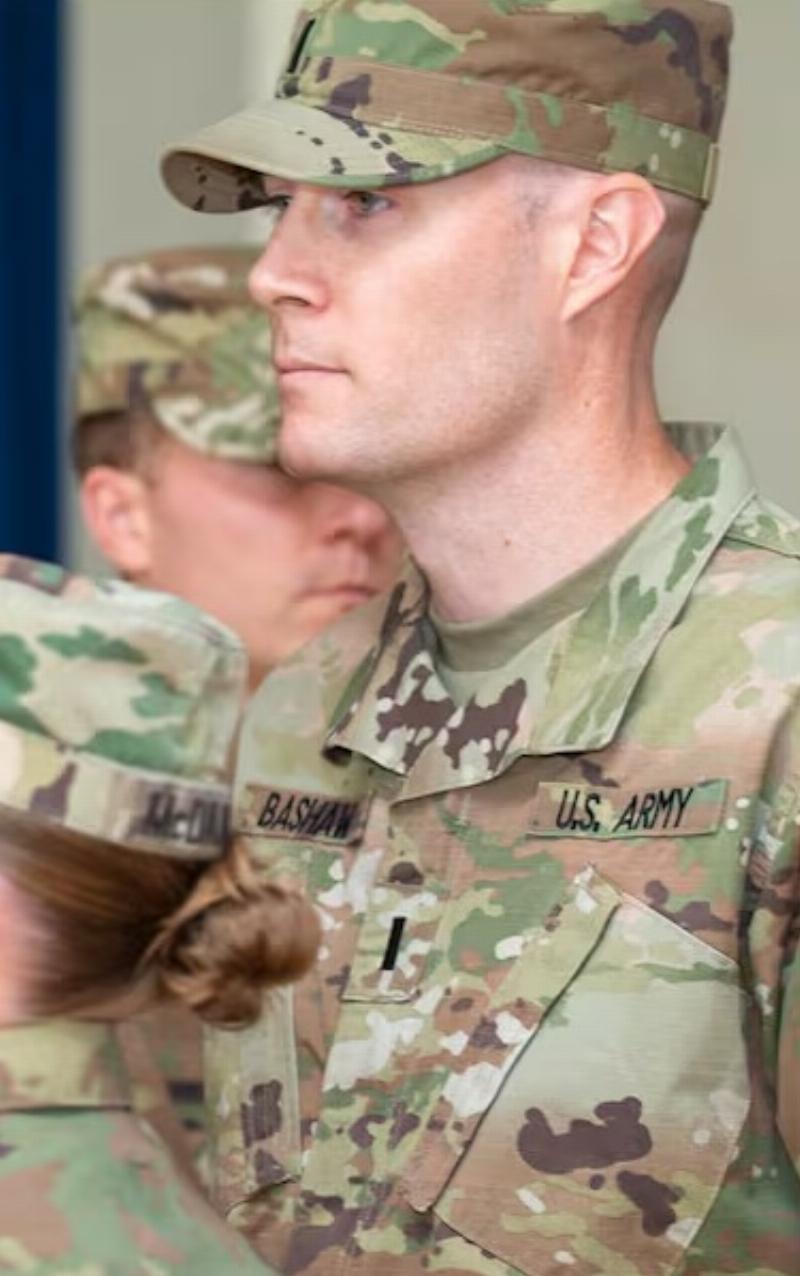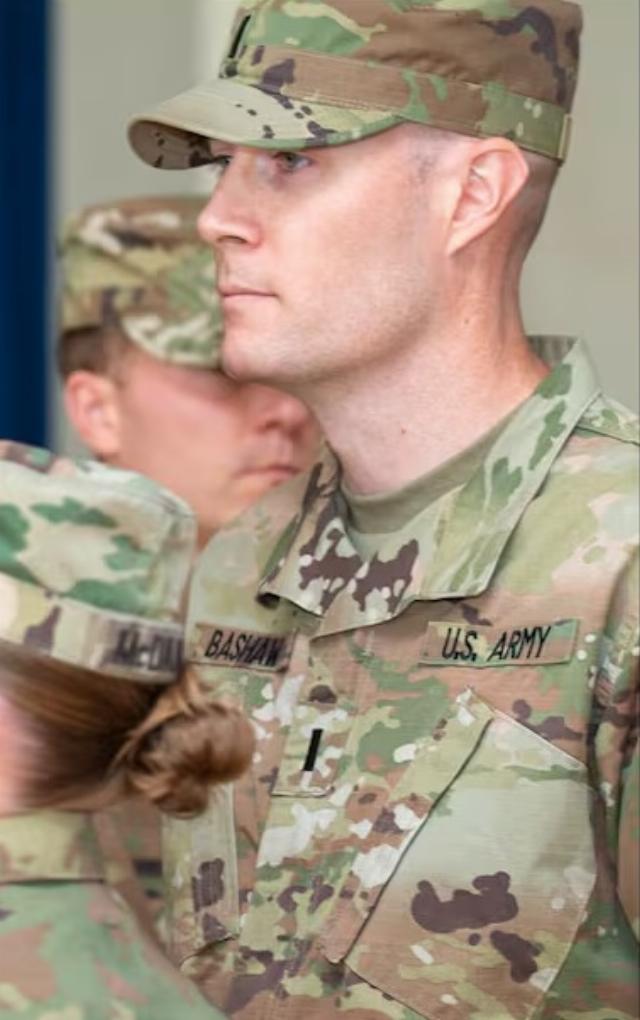


On May 29, 2025, President Donald J. Trump issued a full and unconditional pardon to First Lieutenant Mark Bashaw -- the only service member in U.S. military history court-martialed for refusing to comply with unlawful COVID-19 mandates. It was a long-overdue act of justice, but a pardon, while powerful, doesn’t come close to honoring the enormity of what this man endured -- or what he represents.
Mark Bashaw was never a criminal. He was never disloyal. He was a principled officer who stood on the Constitution, federal law, and his faith, and for that, the U.S. Army tried to destroy him. His refusal to wear a mask, submit to repeated PCR tests, and comply with an experimental injection -- all of which violated his conscience and religious beliefs -- was treated not as a cry for accountability, but as a mutiny. And so the system moved to make an example of him.
He was convicted under Article 92 of the Uniform Code of Military Justice -- failure to obey a lawful order -- but even the military judge refused to punish him, recognizing the absurdity of the case. As reported by Military.com, Bashaw was sentenced to nothing, a silent admission that the conviction was political, not legal. But the damage was done. His record was flagged. His promotion was halted. And in June 2023, he was discharged from the Army under the authority of Major General Robert Edmonson, with the approval of a political class more interested in punishing dissent than following the law.
Let’s be absolutely clear about that law. The COVID-19 vaccines being pushed on the military at the time were only authorized under an Emergency Use Authorization, not fully licensed or approved. According to federal statute -- 21 U.S. Code § 360bbb-3 -- every individual, including military personnel, has the right to informed consent and the option to refuse any EUA product. In short, Bashaw was right. The government was wrong. And his court-martial was not just unlawful -- it was unconstitutional.
 The dishonorable treatment didn’t stop with his discharge. Bashaw’s resistance was publicly attacked and ridiculed by Democratic operatives, including Rep. Yevgeny “Y” Vindman, a man who built his political brand on betraying a sitting President, and who now masquerades as a moral authority while cheering the destruction of a soldier who simply followed the law. Meanwhile, senior Pentagon officials like Lloyd Austin, Mark Milley, and Dr. Terry Adirim pushed the mandates with religious zeal, turning what should have been a medical and legal decision into a political loyalty test. These individuals weren’t upholding the Uniform Code -- they were enforcing obedience to a narrative, and anyone who stepped outside it was crushed.
The dishonorable treatment didn’t stop with his discharge. Bashaw’s resistance was publicly attacked and ridiculed by Democratic operatives, including Rep. Yevgeny “Y” Vindman, a man who built his political brand on betraying a sitting President, and who now masquerades as a moral authority while cheering the destruction of a soldier who simply followed the law. Meanwhile, senior Pentagon officials like Lloyd Austin, Mark Milley, and Dr. Terry Adirim pushed the mandates with religious zeal, turning what should have been a medical and legal decision into a political loyalty test. These individuals weren’t upholding the Uniform Code -- they were enforcing obedience to a narrative, and anyone who stepped outside it was crushed.
Bashaw did not bend. He did not grovel. He didn’t quietly retire and disappear. He fought back. He filed an Article 138 complaint, outlining the retaliation he faced and the illegality of the mandates themselves. And while the system turned a blind eye, the people paid attention. The story spread. The injustice rang out. And it eventually reached the one man still willing to confront the administrative state head-on: Donald Trump.
Trump’s pardon of Mark Bashaw is more than an exoneration -- it is an official recognition that Bashaw was a victim of lawless, vindictive overreach by his own chain of command. But a pardon is not enough. Pardons are for the guilty who have served their time. Bashaw never deserved a conviction.
Congress should go a step further. The next National Defense Authorization Act should be renamed the 1LT Mark Bashaw Reinstatement and Recognition Act. It should restore his commission, back pay, and benefits. It should promote him, retroactively, to reflect the moral leadership he displayed. And it should investigate the senior officers who orchestrated and carried out this unlawful purge of conscience from our military ranks.
Mark Bashaw is not a footnote. He is a warning -- and a role model. In an era where compliance is rewarded and courage is crushed, he chose truth over comfort. He stood alone when it was dangerous, and when the cost was everything. He walked away from a career most would kill for, rather than betray his oath. That is not criminality. That is character.
In a just republic, character like that would be honored in full military dress -- not stripped of rank by political operatives who cower behind bureaucracy. Mark Bashaw should never have needed a pardon. Because what he defended wasn’t just his own rights -- it was the law, the Constitution, and the soul of the U.S. military.
Now that he’s been vindicated, the question falls to us: Will we be a country that buries its heroes in silence -- or one that restores them with honor?
Image: Graham Snodgrass/U.S. Army
